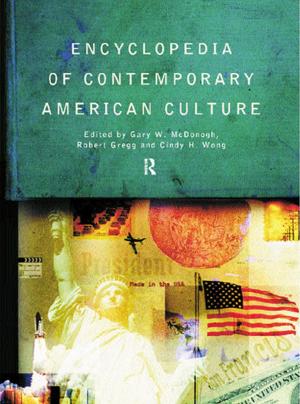| Author: | Brett Kahr | ISBN: | 9780429912108 |
| Publisher: | Taylor and Francis | Publication: | May 8, 2018 |
| Imprint: | Routledge | Language: | English |
| Author: | Brett Kahr |
| ISBN: | 9780429912108 |
| Publisher: | Taylor and Francis |
| Publication: | May 8, 2018 |
| Imprint: | Routledge |
| Language: | English |
This is the second volume in Brett Kahr's 'Interviews with Icons' series, following on from Tea with Winnicott. Professor Kahr, himself a highly regarded psychoanalyst, turns his attention to the work of the father of psychoanalysis. The book is lavishly illustrated by Alison Bechdel, winner of the MacArthur Foundation 'Genius' Award.Sigmund Freud pays another visit to Vienna's renowned Cafe Landtmann, where he had often enjoyed reading newspapers and sipping coffee. Freud explains how he came to invent psychoanalysis, speaks bluntly about his feelings of betrayal by Carl Gustav Jung, recounts his flight from the Nazis, and so much more, all the while explaining his theories of symptom formation and psychosexuality.Framed as a 'posthumous interview', the book serves as the perfect introduction to the work of Freud while examining the context in which he lived and worked. Kahr examines his legacy and considers what Freud has to teach us. In a world where manifestations of sexuality and issues of the mind are ever more widely discussed, the work of Sigmund Freud is more relevant than ever.
This is the second volume in Brett Kahr's 'Interviews with Icons' series, following on from Tea with Winnicott. Professor Kahr, himself a highly regarded psychoanalyst, turns his attention to the work of the father of psychoanalysis. The book is lavishly illustrated by Alison Bechdel, winner of the MacArthur Foundation 'Genius' Award.Sigmund Freud pays another visit to Vienna's renowned Cafe Landtmann, where he had often enjoyed reading newspapers and sipping coffee. Freud explains how he came to invent psychoanalysis, speaks bluntly about his feelings of betrayal by Carl Gustav Jung, recounts his flight from the Nazis, and so much more, all the while explaining his theories of symptom formation and psychosexuality.Framed as a 'posthumous interview', the book serves as the perfect introduction to the work of Freud while examining the context in which he lived and worked. Kahr examines his legacy and considers what Freud has to teach us. In a world where manifestations of sexuality and issues of the mind are ever more widely discussed, the work of Sigmund Freud is more relevant than ever.















